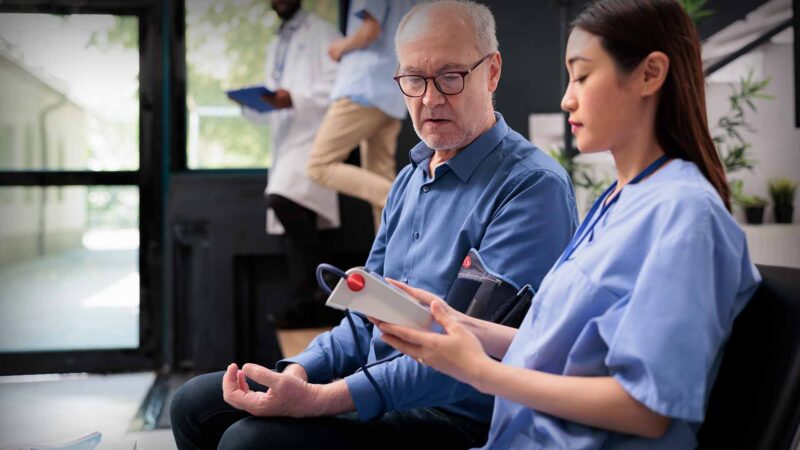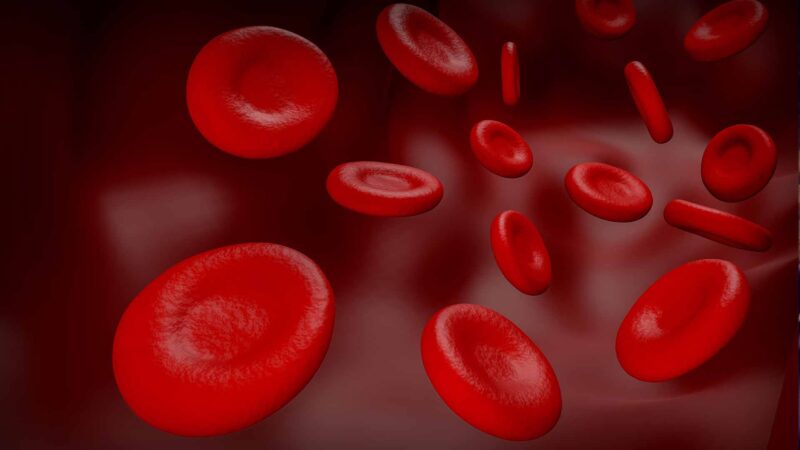New nurse-led protocols for stroke patients, based on ACU research, led by the Nursing Research Institute, have resulted in changes to policy, guidelines and clinical practice in Europe and Australia. The protocols were developed through the Quality in Acute Stroke Care (QASC) Trial (published in the Lancet, 2011) to manage fever, hyperglycaemia and swallowing (FeSS) post-stroke.
Professor Sandy Middleton FACN, FAAN is a Professor of Nursing and Director of the Nursing Research Institute at St Vincent’s Health Network Sydney, St Vincent’s Hospital Melbourne and Australian Catholic University. She focusses on stroke and the way research can improve care, particularly analysing the way nurses can initiate care to improve patient recovery.
Professor Middleton was the lead investigator on the landmark NHMRC-funded QASC cluster trial that demonstrated decreased death and dependency following implementation of nurse-initiated protocols to manage fever, hyperglycaemia and swallowing post-stroke, winning multiple national and international awards including ACU’s Vice-Chancellor’s Staff Excellence Award, Excellence in Research and Research Partnerships in 2019. These protocols have been translated into 64 hospitals in 17 European countries and in adopted in 36 NSW hospitals. She has published in high impact journals including The Lancet and The New England Journal of Medicine.
Australian Health Journal spoke with Professor Sandy Middleton on these significant achievements in nurse-led acute stroke care.
You Might also like
-
Unleashing the potential of Paramedic skills and knowledge
According to a prominent paramedicine academic and researcher, paramedics have the potential to provide much-needed care in the community, changing the traditional healthcare model. Research points to paramedics having a wider healthcare workforce impact based on their ability to identify and fix problems 24/7.
Dr. Brendan Shannon is Head of Postgraduate Programs in the Department of Paramedicine at Monash University and a member of The Australasian College of Paramedicine. His interests including refining healthcare models, to ensure underserved communities receive requisite care. These alternative care pathways, like outreach programs, can work out of hospitals to provide care in underserved communities with social and complex chronic conditions.
-
Improved treatment in advanced-stage Hodgkin lymphoma
A global clinical trial successfully reduced toxicity and side effects in advanced stage Hodgkin lymphoma patients by using a modified treatment regimen.
Australian Health Journal spoke with Professor Mark Hertzberg in his role in the ALLG HD10 Clinical Trial and as a former Chair of the Scientific Advisory Committee of the Australasian Leukaemia & Lymphoma Group (ALLG), an organisation involved in improving the treatments and lives of blood cancer patients.
-
Expansion of specialist training in regional & rural areas
Associate Professor Sanjay Jeganathan, Chair of the Council of Presidents of Medical Colleges (CPMC) states, ”Our rural and regional communities deserve the same access to specialist care as our cities. We’re seeing real results from our colleges’ commitment to rural training.”



